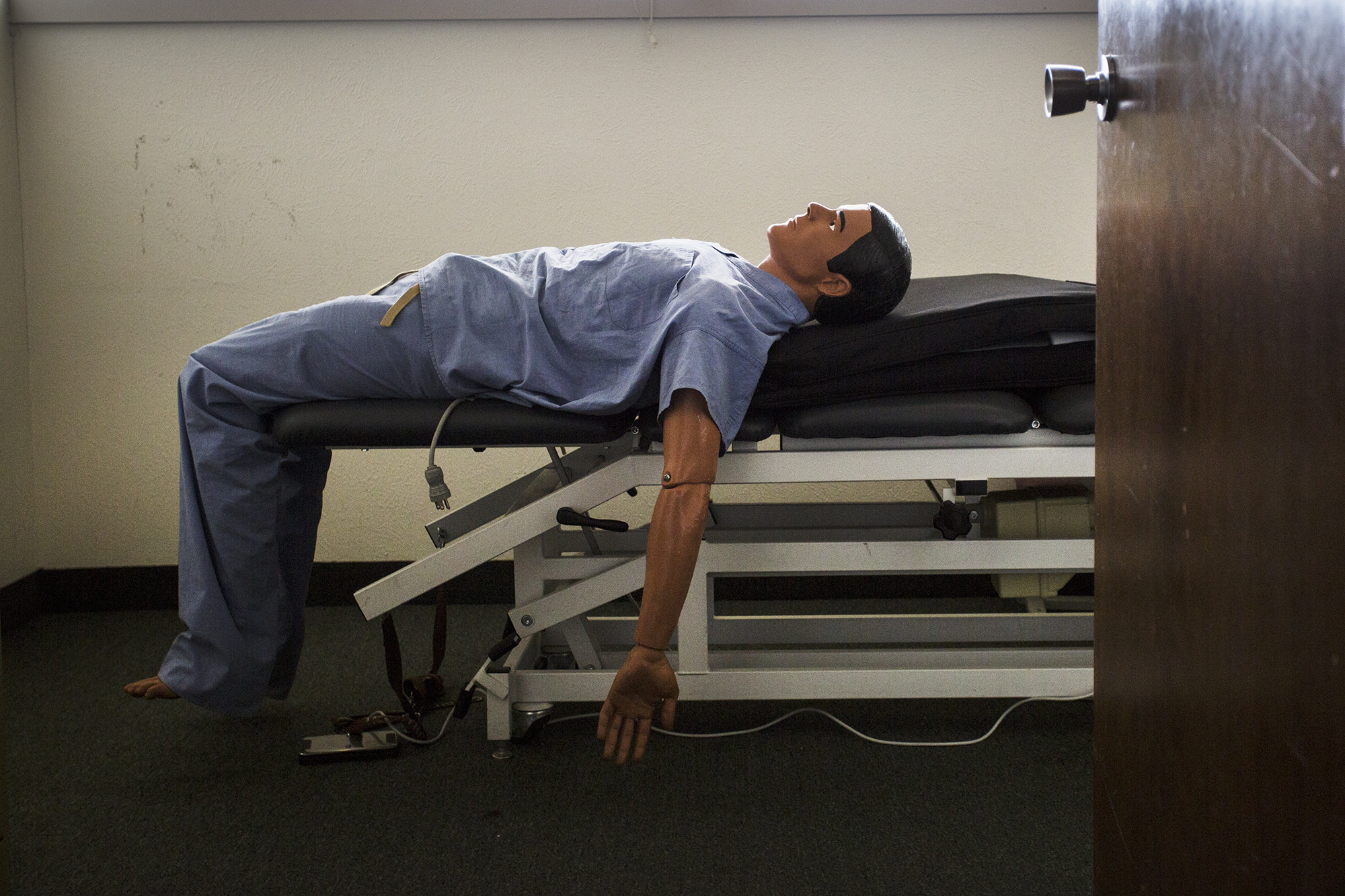Lawmakers Propose Cutting Funds to Schools with Same-Sex Partner Benefits

In the last year, two Central Texas school districts have announced plans to offer employee benefits to same-sex couples, but one bill heard Tuesday at the Capitol would make that more difficult across the state.
Pflugerville ISD announced the change last fall, making it the first district in the state to offer benefits to “dependents” who pay into their partners’ insurance plan, at no additional cost to the district or state. Austin ISD followed in late March, saying the change would cost the district $600,000 per year.
Rep. Drew Springer (R-Muenster) has a plan that’d put an end to this trend, though. He explained his proposal to the House Public Education Committee Tuesday night, to withhold 7.5 percent of the state’s funding to any district offering domestic partner benefits. That, he said, should be about equal to the full cost of a district’s employee insurance program.
Springer is joined by dozens of Republican co-authors on House Bill 1568. He stressed that his bill would apply equally to same-sex and heterosexual couples, but also suggested Pflugerville and Austin’s policies were rooted in something more specific.
“I think that was around the back-side door and around the corner of trying to figure out, ‘We’re not happy with the constitutional amendment we had in 2005 that defines marriage between a man and a woman,'” Springer said.
Rep. Harold Dutton (D-Houston) pressed Springer about whether he thought the districts’ policies are wrong. Springer insisted he didn’t want to push his personal beliefs on anyone, but he felt strongly that state dollars shouldn’t be put towards benefits for domestic partners.
“The reason is we have limited funds,” Springer said. “We need to make sure our dollars are going to educate our kids and not for expanding benefits on a social agenda that goes out and says ‘we want to be new unique, different and cover things that nobody else has ever covered under the state of Texas.’”
A recent poll by Equality Texas found that 65.7 percent of Texans support extending benefits to government and university employees’ partners.
Springer complained that expanding these policies would be a huge extra cost to the state. “If we outlawed marriage, we could save a ton of money,” Rep. Joe Deshotel (D-Beaumont) prodded him.
Unlike married people, though, Springer noted, domestic partners can’t get divorced. He said some might take advantage of the system by staying on the same health insurance plan after they’ve split up.
“It’s very difficult to be able to police that,” Springer said. “You have a next-door neighbor who may be 40 years, 80 years old—my next-door neighbor—and she comes to me and says, Drew, I need to get coverage, help me out here. It’s easy to make that person my partner.”
Dutton wondered how Springer—a freshman who has also proposed outlawing local bans on plastic bag bags—imagined his bill fit with the principle of local control. “If it does not affect the taxpayers of my district, if we’re not going to be looking at additional cost,” Springer said, then he’s all for it.
“Local control seems to be a lot like love. Everybody’s got their own idea of it,” Deshotel mused.
Steve Washburn, pastor at the First Baptist Church of Pflugerville, told lawmakers of the turmoil that followed the district’s decision in his otherwise civil community. “At a school board meeting in the heat of debate, I was referred to as a hate-monger,” he said. “I’ve been there for 23 years. I’m pretty highly respected. That enraged a lot of people. It hurt a lot of people’s feelings.”
Paul Henley, husband of a Pflugerville employee, told lawmakers that opening benefit programs to domestic partners is a pressing civil rights issue. “In 40 years, this debate will look much like the racial inequality debates did 50 years ago,” Henley said. “It’s pretty hard to miss the opinion and voting pattern movement in the nation and in Texas.”


